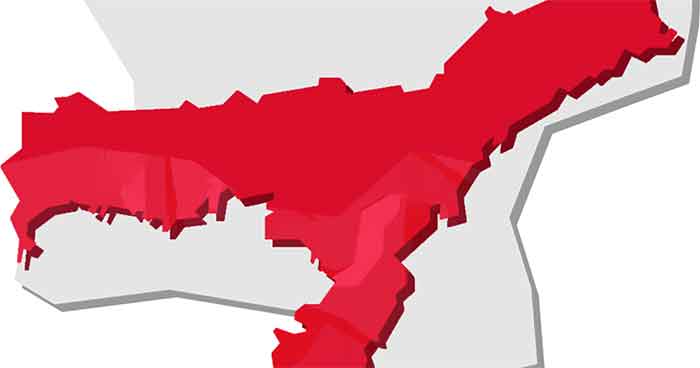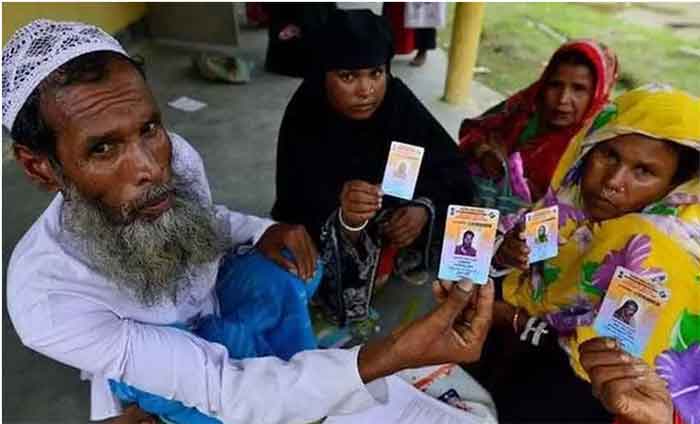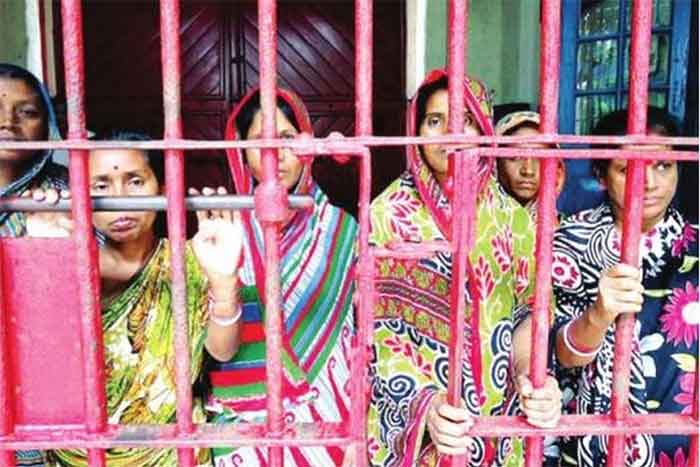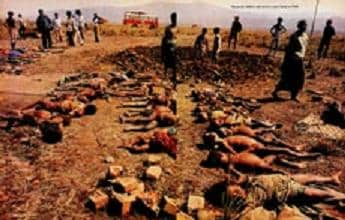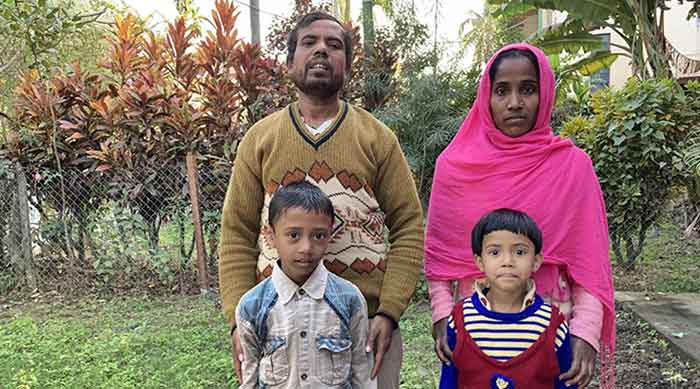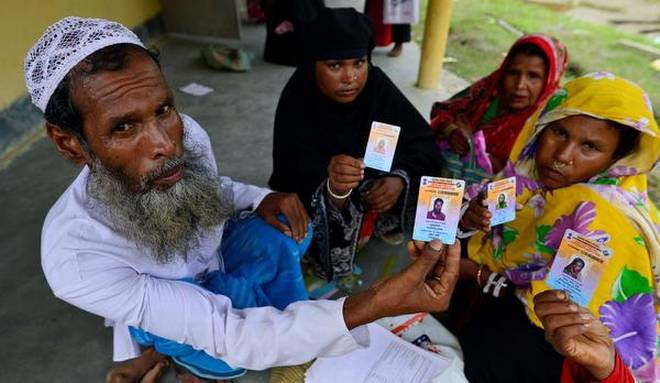
The world is awash with thousands of anecdotes about large-scale migration of people to places away from their homelands. Compelled by reasons to escape persecution, evade conflicts, economic and nature-driven pressures, et al. Ideally to make a living, which erupts from a longing for infrastructure, homogenous and pervasive, quintessential for survival.
However, a deliberate reducing of millions to the position of ‘stateless citizens’ in their own land, overlooking the above factors is being consciously amoral. It positions the State of being oppressive with no accountability. Assam’s draft NRC (National Register of Citizens) is a paradigm reflection of this happening.
The release of Assam’s final draft of citizens has triggered a political slugfest. It has led to accusations of politicking, polarisation and appeasement running rife, amid panic and fear among people. It has pushed the sub-continent, into its 72-years of existence, at the brink of a human catastrophe in making.
Convolutions and exclusion
Aimed at identifying bona fides from aliens, the draft exercise turned to be one of exclusion. The final draft published on July 30 incorporated 2.89 crore people out of 3.29 crore applicants. It excluded over four million, with 2.48 lakh of those marked as doubtful or ‘D’ voters starting at being stateless citizens.
The National Register of Citizens, first setup after the 1951 census, was updated with March 24, 1971 as the cut-off date. Implying, all those whose names did not figure in the 1951 register or those who entered Assam after March 24, 1971 shall be declared as foreigners. This was in accordance with Assam accord of 1985, an agreement arrived at after six-years (1979-1985) of agitation against illegal immigration. However, the accord was kept in cold storage for 33 years by successive governments, but for the apex court calling for updation in 2015 that saw the process being fast-tracked.
Tracing migration
Nevertheless, the exercise to recognise illegal immigrants from Bangladesh has opened a Pandora’s box impacting millions lives. For instance, the premise of NRC on original inhabitants (OIs) lacks credibility, for lack of constitutional validity and definitional clarity, lost in history and geographical timeline. Prior to independence, the British brought scores of people from present-day Tamil Nadu, Chhattisgarh, Odisha, Jharkhand and East Bengal (now Bangladesh) to work in the tea plantations and fertile plains of Assam, eventually settling in the region.
Post-independence, specifically days ahead of Operation Searchlight offensive on 25 March, 1971 and in months leading to the Bangladesh Liberation War in 1971 an estimated 10 million fled to India to escape persecution and genocide. The exodus trickled into regions of West Bengal, Assam, Meghalaya and Tripura, including the hinterlands of Bihar, Madhya Pradesh, Uttar Pradesh. Although, majority were sent back within few months into the creation of Bangladesh, but several stayed back in pockets making a living. In addition, several perennial factors like flooding, erosion of land, demand for labour, generational poverty, illiteracy et al only contributed to people’s natural movement.
Logistical-legal tangle
The exercise has left the body politic of Assam fractured like never before, dividing families and siblings into camps of legal and illegal citizenry. For instance, Ajmal Haq, a retired army veteran failed to make it to final draft unlike his mother and siblings, while in another case the kin of former President Fakhrudin Ali Ahmed were left out. Several such cases have surfaced amid allegations of procedural flaws and discrimination on religious and linguistic lines. Supplementing it, is the issue of people tagged as D-voters or doubtful voters, whose fate hangs with Foreigners Tribunals (FTs) cumbersome process to obtain clearance. Ostensibly, it is reflecting political incorrectness to seek records after 47-years of hiatus since the drawing of cut-off period, in view of the aforesaid factors to migration.
Although citizenship in Assam is determined based on linkage and legacy, there are unsettling questions of constitutional legality. Like, what happens to the offspring of the illegal immigrants born after March 24, 1971, who attain citizenship by birth? Then there are those who have acquired citizenship by naturalisation. Further, the cut-off date of 1971 is a ‘bone of contention’ as it is being challenged in the Supreme Court through a petition seeking 1951 as the cut-off year. If the apex court accepts 1951 and invalidates 1971 as the cut-off year, the entire exercise will backfire.
Ironically, The Citizenship (Amendment) Bill, 2016 proposed by the Centre does more damage, than any good to the NRC exercise. It guarantees citizenship to six religious minorities – Hindus, Sikhs, Buddhists, Jains, Parsis and Christians from Afghanistan, Bangladesh and Pakistan on grounds of persecution. While it excludes Muslims – Shia and Ahmediyas – who are faced with similar ordeal, thus going against principle of equality entrusted in Art 14 of the Constitution. More, the Bill further reduces the time span to acquire citizenship by naturalisation – from 11-years of continuous stay to 6-years.
Insider-outsider politics
The entire gamut of NRC revolves around the politics of insider and outsider, more specifically the Khilonjiya (indigenous people) vs the Bangladeshi. Thinly woven around linguistic and religious narratives, it never was pronounced so brazenly, and officially as it is today. Worse, is fuelling xenophobia and public sentient centred around fears of land being taken, jobs snatched, culture and language threatened by migrants. The narrative capitalised to make political fortunes, this time saw a less relative party, the BJP coming to power on the bogey of illegal immigrants.
The writing on the wall was clear, when BJP’s prime ministerial candidate Narendra Modi, had called to ‘accommodate Hindus, while alleging conspiracy to make way for Bangladeshi immigrants by killing rhinos’, in Assam’s Silchar. Further, in 2015 he had unequivocally avowed to ‘drive away Bangladeshis from Assam with their bags and baggage.’ It only added to the palpitating bad blood and mistrust among communities in the region, with flashpoints like the Nellie Massacre (1983) and the Kokrajhar violence (2012) serving as stark reminders of divisive politics.
Holistic approach
There are no easy answers to a complex exercise of ominous nature – the NRC, involving millions of lives hanging in a limbo. Although, the final NRC may lessen the number of illegal migrants, still those deemed illegal cannot be deported, as there is no receiving state. Bangladesh in this case, which is unlikely to accept them, requiring a constructive and convincing negotiation without hampering bilateral relations; they cannot be either put in detention centres, but need to be regularised in a phased manner. Like, granting of ‘long-term’ work permits with no voting or citizenship rights, but with access to basic public education and healthcare facilities. Further, rationalisation of borders is imperative to stem illegal immigration.
Although the Supreme Court has signalled green to the process of claims and objections, setting in motion the draft exercise but eventually it is the ‘judicial scrutiny’ alone that can draw the curtains on the final NRC exercise and its fallout. It is imperative to adopt a judicious approach towards a humanitarian problem, with due diligence without hampering the constitutional safeguards of indigenous people as well as the bona fides.
Mohammed Tahsin is a freelance writer and journalist

